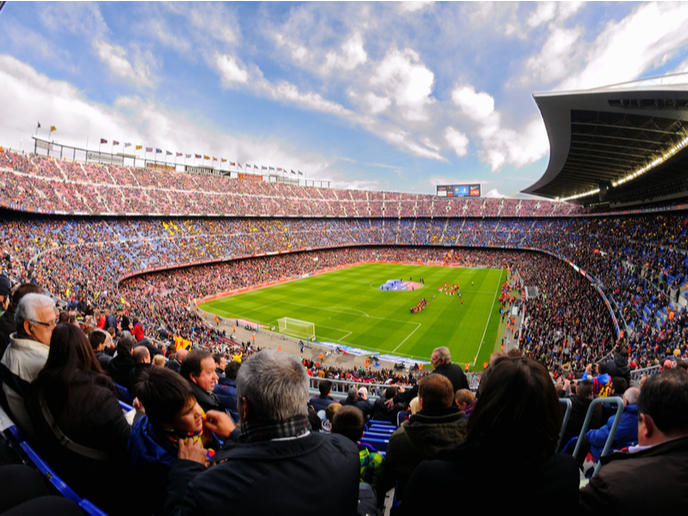Supercomputing at the service of Barcelona football fans
The Barcelona Supercomputing Center (BSC), home to one of Europe’s most powerful supercomputers, is building a digital twin of FC Barcelona’s Camp Nou football stadium. The innovative architecture will make it possible to analyse and predict the flow of large crowds inside and outside the stadium not only during normal operation, but also while maintenance and construction projects are in progress. This effort forms part of the EU-funded IoTwins project that is creating a technological platform to be used in developing and deploying distributed and edge-enabled digital twins in production plants and large-scale facilities.
Simulating the movements of fans
The results of the project’s first phase were discussed at the Sports Tomorrow congress organised by the Barça Innovation Hub between 9 and 20 November. “All of the information generated by the fans during their stadium experience is being entered into the [Camp Nou digital] twin,” according to a news item(opens in new window) posted about the congress on the Barça Innovation Hub website. “With months of data collected, the algorithms can discern different fan profiles and, depending on who the visiting team is, as well as weather and match forecasts, predict the behaviour of thousands of people.” The aim is to obtain clear information on what fans do before and after a game in order to increase their safety, improve their overall experience and promote better use of commercial areas. Additionally, this will aid decision-making on the flow of equipment and workers during construction and maintenance phases. Speaking at the congress, Francesco Millo of Italian project coordinator Bonfiglioli Riduttori provided his assessment of the status quo of digital transformation worldwide. As stated in the same news item, he concluded that “in order to innovate, the fundamental thing is partnerships between companies from different sectors,” an excellent example of which is the partnership between BSC and FC Barcelona.
Simulations in the COVID-19 era
The Camp Nou digital twin, whose construction is already in progress, is based on Pandora technology developed at the BSC. To facilitate crowd management once authorities allow visitors to return to the stadium, the project team is “incorporating a Covid-19 transmission model into the simulations,” a news item(opens in new window) on project partner FC Barcelona’s website reports. This “would allow the analysis of different ways of regulating entry of fans into the stadium, seeing which one best suits safety measures: Social distancing and capacity restriction,” the news item goes on to say. The IoTwins (Distributed Digital Twins for industrial SMEs: a big-data platform) project aims to promote the uptake of Industry 4.0 technologies with a view to optimising processes and enhancing productivity, safety and a positive environmental impact. The 3-year project ends in 2022. For more information, please see: IoTwins project website(opens in new window)



